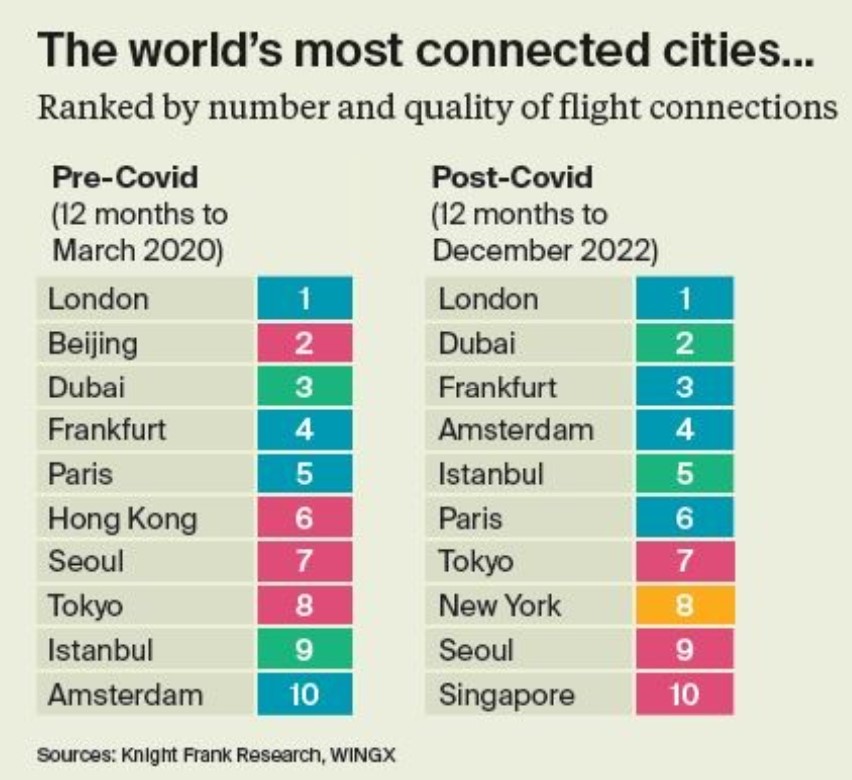Singapore becoming critical global wealth hub
Its ability to attract global businesses, and rich ecosystem of services make Singapore an attractive proposition for investors.
3 minutes to read
Singapore has always been a strong exporter of capital, and for the past five years, the city-state has been in fierce competition with Hong Kong to become Asia’s dominant financial hub.
Global mobility has long been a must-have for wealthy investors, fuelling demand for second passports, visas and citizenships as competition to attract footloose wealthy heats up. Singapore’s arrival in the top 10 rankings for the number and quality of flight connections post-Covid in 2022 underlines the city-state’s steadily increasing global significance.

Tax incentives and family offices
While the UK, the EU and the US still attract considerable numbers of globally footloose, wealthy residents, Singapore is emerging as a critical wealth hub.
Singapore’s sevenfold growth in family offices alone is testament to the size of the prize for exchequers. The number of single-family offices, that provide wealth-management, has jumped nearly threefold since the pandemic began, largely driven by an influx of wealthy Chinese families.
Already positioned as a regional leader in education and secure living, and a broad, pro-business economy, Singapore has in recent years made particularly large investments to strengthen its foothold as a global wealth hub, most notably via tax perks that incentivise the setting up of family offices.
Singapore is developing a very attractive tax and regulatory framework which will serve to attract not only more Asian, but also global, wealthy residents.
Where is the capital coming from?
About 75% of assets under management (AUM) in Singapore are from diverse overseas sources, with North America and Europe each contributing about 17 to 18% of the city-state’s AUM and 33% coming from Asia.
A total of 296 luxury non-landed homes were sold in 2022, substantially lower than the 487 transactions recorded the previous year, largely due to dwindling supply. Family-sized units are in particularly high demand. Prices increased by 3.9% in 2022.
Given that outbound capital has always been very UK-centric — which will continue to be the case through 2023 — values in prime central London remain attractive relative to levels, for example, pre-2016.
A significant number of wealthy individuals looking to purchase second homes in the UK capital this year is expected.
Nicholas Keong, Knight Frank Singapore head of Private Office, says, “Singapore is unique in its offerings as a global wealth management hub and financial hub anchored in political stability, low corruption rates and transparent public institutions. It will remain a perfect base for businesses and investors seeking to capture the upside of the huge growth potential in Asia in the coming decade. The US and Australia are also significant draws – Perth is just five hours away, Melbourne and Sydney around eight. They all have the education, weather and lifestyle to attract more investment.
“We’re increasingly seeing wealthy families seeking to gain a foothold in Japan. Low interest rates and the weak yen plus gross yields of 4% to 5% are drawing buyers into the Japanese multifamily space. It’s not easy to break into the market – institutions that take the development risk tend to want to hold on to stabilised assets – but when they do become available, huge competition from family offices is expected.”
Discover more
Download
Download the full report for more in depth analysis and the latest trends relating to global wealth.
Download the report
Subscribe
Subscribe for all the latest insights and additional content.
Subscribe